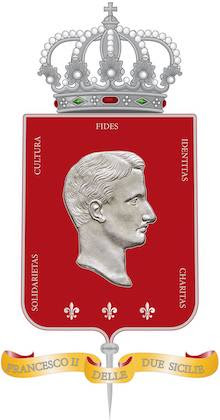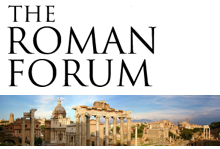Why Research Your Ancestors?
By Angelo Coniglio
I’ll break from my review of on-line genealogy sites to discuss thoughts elicited by a fellow writer who has expounded on his lack of interest in the origins of his European ancestry. He engagingly wrote “None of my ancestors ever looked back with anything like nostalgia. As far as they were concerned, it was ‘good riddance’ to the Old Country and the quaint customs of impressments, bonded servitude and nothing to eat.” He continued: “now, several generations removed from the terror of it, I still have no desire to seek my roots” and he finds “secret satisfaction in being the descendant of refugees who were nobodies.”
I share some of those feelings, but I must address a widespread misconception that genealogy is useful only if it results in the knowledge that one’s ancestors were rich, or noble, or famous, or all three. If finding ‘famous ancestors’ is your sole reason for doing genealogical research, you are likely to be disappointed. The great preponderance of souls who have inhabited this earth have been neither “members of the U.S. Senate, nor generals on horseback, nor millionaire entrepreneurs,” so don’t be surprised if you find none in your family tree.
 Ancestral ‘celebrity searches’ can have an undesired effect. As a novice researcher, you may go on-line and find ‘trees’ posted by others that purport not only to show your ancestors, but that one or more of your ancestral lines descends from a prince, a famous author, or other luminary. You must ‘do your homework’ and corroborate each connection to the princely supposed ancestor, by confirming the sources of the information. If you don’t, the presumed connection to glory is worthless.
Ancestral ‘celebrity searches’ can have an undesired effect. As a novice researcher, you may go on-line and find ‘trees’ posted by others that purport not only to show your ancestors, but that one or more of your ancestral lines descends from a prince, a famous author, or other luminary. You must ‘do your homework’ and corroborate each connection to the princely supposed ancestor, by confirming the sources of the information. If you don’t, the presumed connection to glory is worthless.
I was the ninth and last child of Sicilian immigrants who came to America over one hundred years ago. My father was a laborer, my mother a housewife (what else would she be, with nine kids?) I didn’t know it as a child, but my historical and genealogic studies have shown me that they lived in an impoverished land where the ruling classes intentionally and relentlessly excluded the common folk from education. To survive, like most ordinary folk, they had to work at backbreaking labor in the fields or the sulfur mines. Their rights were virtually nonexistent. Women married as young as thirteen, to bear children every two years until their mid-forties, or later. If a woman’s husband died young, she immediately had to remarry, to provide a father for her children; then she commenced having a child every other year with her second husband.
So, what had I to gain from researching the escapees from such a wretched life? I gained the knowledge that my ancestors, and my wife’s as well, trace back to mid-1700s Sicily. That my Coniglio ancestors back to my great-great-great-great grandfather were born in tiny Serradifalco (The Mountain of the Hawk), dead center in the island of Sicily. I found that Gaetano Coniglio was not only the name of my eldest brother, but of four of my direct ancestors. I learned that my father had more than the one brother that I had known of, and that ‘Pa’, like I, was a seventh son. I learned that my father, and his father before him, worked in the fetid sulfur mines from before dawn ‘til after dusk. And that as the near-caste system required, my father married the daughter of a sulfur miner.
My investigations revealed that on my mother’s side, one ancestor was an abandoned child, left in the town’s ‘foundling wheel’, who beat the overwhelming odds against such children and survived to marry, and to generate over six hundred descendants (that I know of). I learned that none of the three hundred direct ancestors I have identified, of my wife or myself, before our own parents, could read or write.
So, even though my ancestors were ‘nobodies’, I’m glad to have found out about them and their lives. I feel that not only their genes, but their experiences as well, have shaped me and my living relatives into what we are today. I’m proud of their perseverance, and the fact that my family, which descended from such simple folk, continues to emulate their examples of strength and resolve.
Coniglio is the author of the book The Lady of the Wheel, inspired by his Sicilian research. Order the paperback or the Kindle version at http://bit.ly/SicilianStory
Coniglio’s web page at http://bit.ly/AFCGen has helpul hints on genealogic research. If you have genealogy questions, or would like him to lecture to your club or group, e-mail him at genealogytips@aol.com









